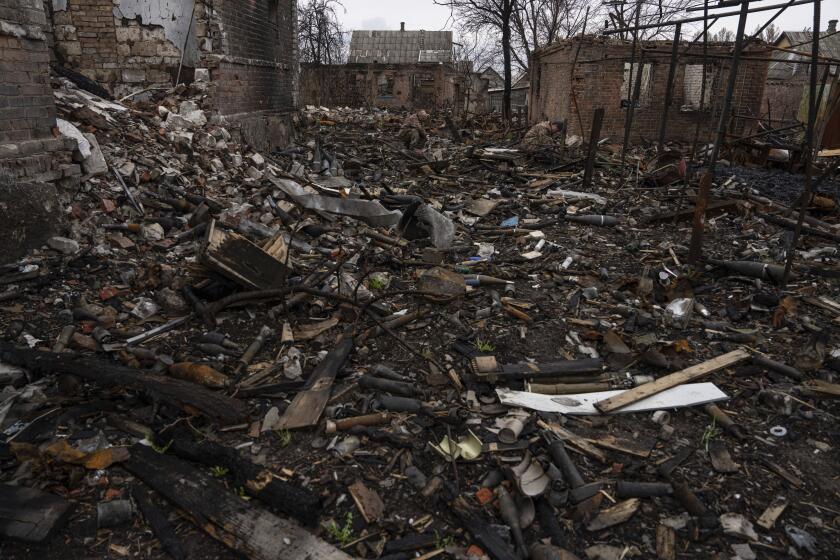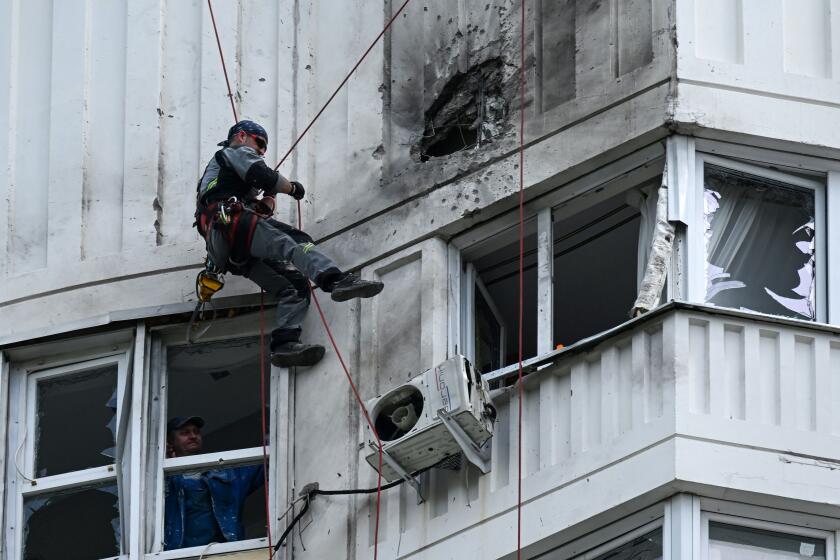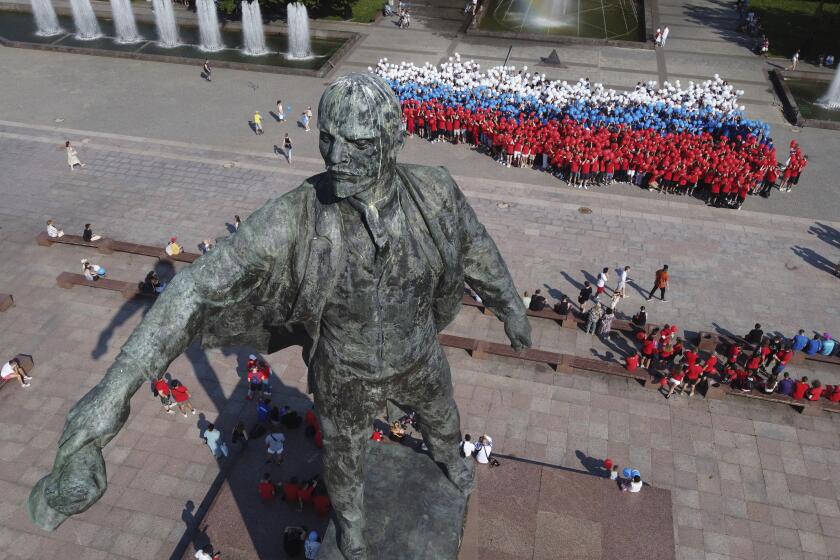Opinion: Will Poland become the next Hungary, a democracy in name only?

- Share via
Elections are always high-stakes affairs in countries experiencing democratic backsliding. This was true of Turkey’s recent presidential election — described as “free but unfair.” Likewise, when Poles go to vote this fall, democracy itself will be on the line.
Since coming to power in 2015, Poland’s populist Law and Justice (PiS) party has politicized the judiciary, harassed civil society and worked tirelessly to drive independent media out of business. It has capitalized on the politics of fear and grievance, pitted urban voters against rural constituencies and touted a mythologized version of Polish history.
In this sense, the PiS has been following in the footsteps of both Turkish President Recep Tayyip Erdoğan and Hungarian Prime Minister Victor Orbán, whose country can no longer even be considered a democracy, though it remains a member of the European Union. The difference is that Poland’s de facto leader, Jarosław Kaczyński, has left the presidency to someone else — Andrzej Duda — thereby shielding his influence from vigorous scrutiny.
Reports of torture and rape by the military are all too common in the last century of Russian conflict.
These tactics may well be working in Poland, just as they have in Turkey and Hungary. During a recent trip to Poland, I was shocked by the sometimes poisonous anti-European — and, specifically, anti-German — tone of public discourse.
Ultimately, only Poland’s voters can decide their country’s political future. But that is no reason for complacency on the part of the international community, especially the world’s democracies. Full-blown authoritarianism would inflict incalculable damage on the West while a war rages next door.
A Polish government that eschews democracy, the rule of law, and European unity would embolden illiberal forces elsewhere, including in the United States, where Donald Trump is leading the Republican field ahead of next year’s presidential election.
Another PiS victory might also weaken Poland’s position as a bulwark against Russian President Vladimir Putin’s imperial designs. Since Russia launched its invasion of Ukraine last year, Poland has provided sanctuary for millions of refugees and has served as the main conduit for Western military supplies flowing to Ukraine’s armed forces. Poles can identify with the refugees’ plight, which recalls the barbarism they suffered at the hands of the Nazis, including the destruction of Warsaw on Hitler’s orders (while the Red Army, on Stalin’s orders, sat on the opposite bank of the Vistula and watched).
Ukraine is suspected of waging a drone attack against Moscow. It’s a turning point in the war, showing how Kyiv is increasingly relying on new technology.
The PiS government deserves high praise for its support of Ukraine, which stands in stark contrast with the Orbán government’s “Hungary for Hungarians” stance and grotesque embrace of Putin. But its commitment to this approach may have its limits. In an apparent attempt to secure farmers’ votes, it announced in April that it was halting imports of Ukrainian grain, though it must be said that Bulgaria, Hungary, Romania and Slovakia also have prohibited grain imports from Ukraine, and all have done so with the EU’s blessing.
Fortunately, the U.S. and the EU do have some leverage that they can use to prevent Poland from threatening foundations of the post-Cold War order, including Poland’s obvious reliance on NATO for its security and the EU for financial support.
The EU must adopt a constructive yet firm approach to the Polish government, backed by the enforcement of the rule-of-law conditionality that was imposed on diplomatic and financial support for both Poland and Hungary last year. Already, the EU has withheld billions of euros that were supposed to go to Poland.
Moreover, the European Court of Justice has imposed a massive daily fine on the country — recently reduced from 1 million euros to 500,000 euros — over its refusal to comply with EU demands to alter its 2019 judicial reforms, which the ECJ ruled violate EU law. The EU must back this ruling with even more institutional and financial muscle. The restoration of judicial independence is nonnegotiable.
Losing the war in Ukraine is the best hope for Russia to get back on the path to economic and social stability.
Democratic and humanist values — the values for which the Ukrainian people are now fighting, at extraordinary cost — are at the heart of the post-Cold War European order. Fortunately, Polish civil society remains robust, with younger generations increasingly leading the fight against PiS’s depredations. They are committed to preventing further democratic backsliding and upholding European values, even if Kaczyński is not. And they deserve greater support from their Western allies.
The large Polish diaspora in the U.S. and Western Europe is uniquely positioned to help, along with the broader international community. Brave Polish NGOs — such as Women’s Strike — are fighting on the front lines to defend women’s rights, under direct threat from PiS. We must amplify their voices, as well as those of Poland’s increasingly threatened LGBT+ community.
It is up to today’s Poles to take up the mantle of the Gdansk shipyard workers whose strike in 1980 led to the establishment of the anti-authoritarian Solidarity trade union and social movement, which ultimately brought down communist rule in Central Europe in 1989. But Poland’s friends must also support those Poles who embody this spirit. Without solidarity, Poland may well lose its democracy.
Kati Marton, chair of Action for Democracy Advisory Council, is a journalist, human rights activist and the author, most recently, of “The Chancellor: The Remarkable Odyssey of Angela Merkel.”
More to Read
A cure for the common opinion
Get thought-provoking perspectives with our weekly newsletter.
You may occasionally receive promotional content from the Los Angeles Times.













